The Well-Tempered Ear
Classical music vocal group Cantus will recreate the World War I ‘Christmas Truce’ of 1914 this Saturday night at the Wisconsin Union Theater | December 6, 2010
By Jacob Stockinger
Music always plays a vital role in celebrating the holidays. Usually we hear J.S. Bach’s “Christmas Oratorio” and Handel’s “Messiah,” the festive brass music of Gabrieli and the soulful Concerti Grossi for strings of Corelli, to say nothing of classic carols and popular songs.
But this Saturday will see an unusual re-creation of an holiday event both musical and historic, one that goes back almost a century and seems particularly relevant today, given how much war and turmoil exist in the world.
At 7:30p.m. in the Wisconsin Union Theater, the vocal group Cantus (below) will perform “All Is Calm.” The title comes from “Silent Night,” the hymn that German soldiers sang when the emerged from the trenches of World War I to mark a temporary Christmas Truce in December of 1914.
Tickets are $32 and $36 for adults, $20 for UW-Madison students. This is also a “Family Savings” event. Youth tickets are only $14 with purchase of adult ticket with a limit of two youth tickets per adult ticket. Youth tickets must be purchased at the same time as the adult tickets and are valid for youths 6-18 years old. Age is verified at the door.
(The Wisconsin Union Theater staff asks patrons to note that there is a UW hockey game the same evening, so they should allow themselves enough time to find parking.)
To buy tickets, visit: https://www.choicesecure03.net/mainapp/eventschedule.aspx?Clientid=UnivMadWisconsin&prod=002871
Or call 608 262-2201.
You can also attend a free pre-concert lecture by retired UW history professor John W. Barker at 6:30 p.m. Check Today in The Union for location.
Click here for program.
Or visit: http://www.uniontheater.wisc.edu/Season10_11/alliscalm.html
Singer Aaron Humble (below top in a photo by Ann Marsden) of Cantus recently granted The Ear an e-mail interview about the musical-dramatic work:
How did Cantus and its partners get the idea or concept for this performance?
The idea for “All is Calm” came from the creator of the show, Peter Rothstein. Because most of the story revolves around men, Peter approached Cantus. It was a great fit. Cantus is a collaborative organization and the show was actually workshopped in a very collaborative manner.
Peter did extensive research and created the first draft of the script. Two employees of Cantus wrote arrangement for about half of the music, and the other half was improvised by the singers in the workshop.
Most of the underscoring and war songs have been transcribed from improvisation. We would try things out and refine them in the workshop and then Peter would synthesize that into the next draft of the show. It was a fantastically creative process.
What are the historical facts on which your concert is based?
The facts regarding this event were suppressed for many years. None of the countries involved in the war had a favorable view of unofficial armistices and truces. It humanized the enemy and made fighting much more difficult.
Most of the men involved in these truces were rotated off the front lines to try and dissolve any camaraderie that may have formed.
We are living in wartime. Is there a lesson to be learned from this recreation of an actual event? How is it relevant to today?
In the closing lines of the show, one of the actors delivers a line that is so poignant: “For a single night, “No Man’s Land [the space between the front lines] was Everyman’s Land; and we, the lowest of the ranks, achieved what the Pope himself could not: In the middle of the War we had ourselves a Merry Christmas.”
It’s funny that you ask about relevancy. The truce was initiated by a German soldier who climbed out of the trench with his hands out to show he had no weapon. In those days, a soldier would never dream of firing on an unarmed man. He walked with his hands out singing “Stille Nacht” (Silent Night). That caused men on both sides of the line to get out of their trench and a truce started.
This wasn’t an isolated incident, it happened all up and down the front lines, I’m sure initiated by different men with different familiar carols.
I thought the other day in rehearsal, if something like this happened today, the man would be killed. I’d like to think otherwise, but with IEDs and suicide bombers, no soldier would take the risk of letting “the enemy” approach.
The relevance is found in the fact that the soldiers achieved something that world leaders couldn’t. They did this by seeing that, in the end, no matter what language we speak, what clothing we wear, or what religion we are–we are all the same. They were all men who missed their loved ones and had to fight everyday to stay alive.
Does it have special relevance to the holidays and to non-Christians?
I don’t think the religious element plays a huge role in the story. The fact that it was Christmas allowed familiar tunes to be passed back and forth from trench to trench.
What composers and pieces are included in the concert?
The music in the piece are works arranged by Timothy C. Takach, Erick Lichte and Cantus. Most of the source material is either from war songs or Christmas carols. Many carols will be familiar, but some are more specific to European origins and haven’t become mainstream carols in the United States.
There is also a prelude that includes carols for Men’s voices by Ralph Vaughn Williams. Vaughn Williams was actually active in World War I and he wrote these arrangements for a choir he formed during the war.
How many singers are there? Do you use a set, costumes, special lighting or sound effects to re-create the atmosphere and the incident, to provide a context? Are there other details of the production that the public should know about?
We use nine singers and three actors.
We do not use special lighting or a set for this production. Since so much of the material is found text, it really speaks for itself.
We want this to be an aural experience more than a visual experience. It has the feel of a radio show.
What is your personal reaction to playing and singing such a role?
Even after performing this piece for years, there are times that it is hard not to be emotional. These are real people who experienced these things and we have the chance to tell their story again.
So much holiday programming is saccharine and sweet — this is a much more realistic and powerful story because it’s something we can learn from today. How can we all find more ways to connect to those who seem so different to us? When we start seeing our “enemies” as equals to ourselves, they cease to be our enemies.
You have performed this concert since 2007. What have been the public’s and critics’ reactions?
The concert has been very well received. All over the country we have people approach us after the show to share their stories. We’ve met many people who have relatives who participated in one of these truces and that is incredible. They approach us with tears in their eyes to tell us how they heard about this from their father 40 years ago. It’s inspiring.
Here is a link with press accolades:
http://www.alliscalm.org/All_Is_Calm___The_Christmas_Truce_of_1914/Press___Review_1.html
Are there other things you would like to say?
Madison is an incredible place and I think this story will really resonate with the community. We are so excited to share this uplifting and inspiring story.
Leave a Comment »
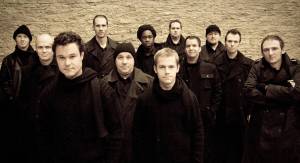
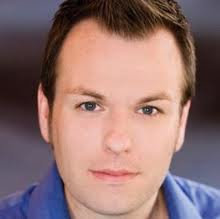
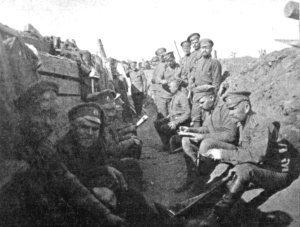
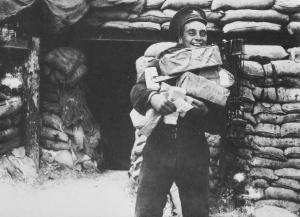
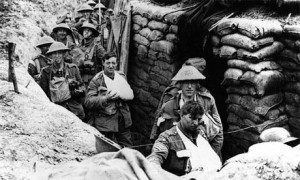
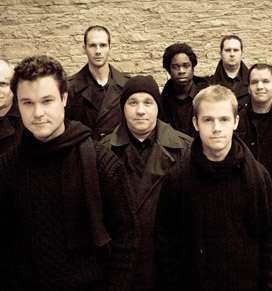
Leave a comment